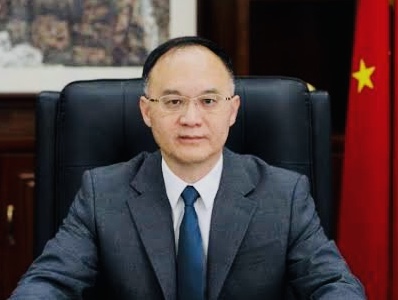Abdul Hakim, 49, is delighted to see his rice yield triple. Living on the bank of the Swat River at village Nagram, the farmer said, “With Chinese seeds, the yield is three times that of the local seeds.”
Abdul Hakim is not the only cultivator to achieve high yield. The other farmers in the area also attributed the increase in production to Chinese seeds. “The rice is early maturing, medium heighted and with medium grains,” said farmer Muhammad Khaliq, adding that the farmers do not know the exact name and variety of the rice but locally they call it China Sholi (Chinese rice).
In the past, the majority of farmers in this area sowed Sara Saila (Basmati rice). The farmers had to soak the rice in water, and then subject it to heat treatment followed by a drying process. “With too much effort and less yield, we switched from sowing traditional seeds to the cultivation of Chinese rice,” farmer Fazal Wahab told Gwadar Pro.
He said that Chinese rice has a high demand in the market. So farmers do not need to store the rice in their stowage but traders buy rice in fields from them and take the grains to nearby markets and mills.
“Sata” is the name for a traditional unit of mass used in the Malakand region. One Sata is equal to 110 kilograms of weight. Currently, the Chinese rice is sold at Rs. 5200 per Sata (Rs. 47 per kg). “Chinese rice has great demands in the market. We take the rice to different rice mills of the country,” Bakhtdi Mal Sha, a trader told Gwadar Pro.
According to him, the price of Chinese rice and other local varieties is almost equal, so farmers choose to cultivate the most profitable crop with less effort.
Farmer Muhammad Anas hoped that in addition to hybrid seeds, China would also transfer agricultural technology to help increase the cultivation of different crops in Malakand Division. The farmers are using traditional tools for harvesting rice in Malakand region.
Pakistan and China are enhancing agriculture cooperation under the framework of China-Pakistan Economic Corridor (CPEC). In April 2020, around 500 tonnes of hybrid rice seeds were brought from Jiangsu, China to enhance rice yield in Pakistan. The Universities of Wuhan and Punjab are jointly developing high-yield hybrid rice varieties with the latest technologies. Since 2019, they are cooperating to develop Honglian hybrid rice in Pakistan, whose cultivation globally has exceeded over 30 million hectares.
With a growing population, Pakistan needs to develop high-yield hybrid crops with Chinese cooperation.
Gu Wenliang, Agricultural Commissioner at the Embassy of the People’s Republic of China in Pakistan, on Tuesday said in a tweet, “more hybrid rice varieties will be introduced to Pakistan to boost rice exports”.

















